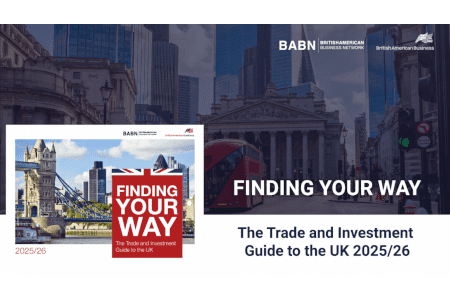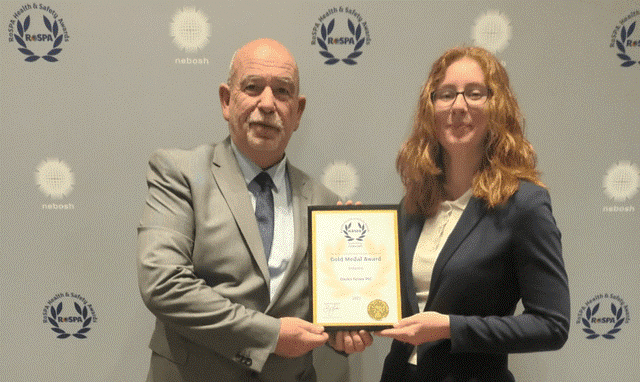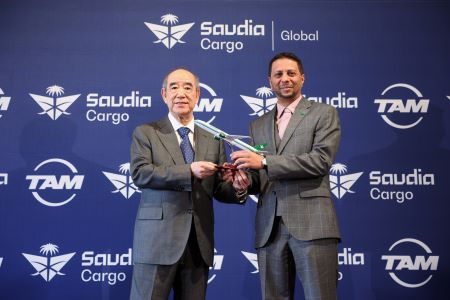ITM Editor Joseph Clarke spoke with Tim Bailey, Director of Chamber International, who discusses how they help SME’s and the importance of training for anyone working in trade
What attracted you to the world of trade?
As a school-leaver, my imagination was fired up when a family friend, the owner of a freight-forwarding business, talked about operating trailer services to and from the continent, and handling all manner of cargo for ‘deep sea’ services to exotic ports around the world. I quickly withdrew my application for a place on an art and design degree course at my local college, and instead accepted an offer of ‘day release’ to study international trade, from Lep Transport, the company that was to be my employer for the first 5 years of my career. Lep was then the world’s biggest forwarding agent; it was later acquired by Kuwait-based Agility Logistics, now part of Danish global giant DSV.
Trade is fast-moving, challenging and compelling: this is what attracted me to the industry and keeps me in it.
What is Chamber International and what are its main services?
Chamber International is the international trade division for chambers of commerce in West & North Yorkshire. It delivers services from Yorkshire and London to its client base, and on behalf of partner organisations and chambers in other regions.
The Chamber International offer comprises 3 key areas: Consultancy and advisory, Training, Trade documentation.
How does Chamber International help SMEs?
We work to a compendium of best practices on trade management, and our support strategies for SMEs draw on a wealth of successful case experience. We offer a broad spectrum of help, from a telephone advice line through to a complete onsite review of a client’s process and procedures, to look for operational improvements and compliance gaps. New-to-export businesses, and firms that lack the capacity to act on export orders, can outsource the entire management of the process to our specialists.
What advice would you give to SMEs who are looking to embark on their export journey?
I have two pieces of advice for any SME looking to start exporting. Firstly, exporting is not something you can play at: it needs commitment. Talk to your local chamber to understand what’s involved, or, better still, attend a chamber training course. Secondly, an export is not an export until you have been paid and the money is in your bank account. Understand the different payment methods used in international trade and don’t be afraid to ask your buyer for cash with order.
Could you explain the connection between Chamber International and Chambers of Commerce?
Chamber International is a trading name used by the West & North Yorkshire Chamber of Commerce for delivering trade support services. We operate a growing, specialist international trade team and the only stand-alone dedicated international trade website in the UK chamber network that is used as a national resource for businesses engaged in trade.
What are some of the main challenges that larger corporations and multinationals are experiencing when it comes to international trade?
We’re seeing a surprising number of multinationals falling foul of the resurgence in export restrictions, controls, and sanctions. For instance, the far-reaching US export control regime presents huge challenges, extending even to the re-export of materials or components of US origin that are used in the manufacture of UK goods. There is a need for all exporters to balance their expansion into international markets against these risks, and undertake careful research at an early stage.
The absence of multilateral rules of origin is also a challenge. Countries are free to design their own rules, and this makes origin a technically complex subject. Most countries apply different rules for different purposes, making things very complicated for companies that manufacture for a global market. Some businesses find this area of trade too burdensome and not cost-effective.
The sportswear manufacturer Puma, for example, which distributes to 120 countries, is known to pay duty on some goods rather than seeking to save money by claiming ‘preference’, when there is doubt about the origin of those goods.
How important is training for businesses working in the trade sector, and what does Chamber International do to help in this context?
Trade has become a lot more complex in recent years, and smaller companies don’t have in-house legal teams, export managers or, in many cases, even a dedicated export administrator. There is a vital need for someone in the business to be trained to know what questions to ask, where to look, and who to turn to for help. We’ve developed a qualification, in partnership with Fidelitas Training in Germany, to meet this need. The Excellence Academy programme balances the needs of both the candidate and employer by helping candidates to develop best-practice approaches around their work routine, while working towards a national qualification. Accredited by British Chambers of Commerce and led by a team of industry professionals, the Academy runs twice a year and is limited to 10 places per cohort, to allow plenty of one-on-one development time with the course leaders.
The UK has made several trade deals over the last few years. What have been some of the most important outcomes of these deals for UK businesses?
The inclusion of a small business chapter within trade agreements is welcomed, and helps to improve an SME’s access to free trade. We’ve also seen deals being negotiated at a faster rate than when we were in the EU, which was slow to do deals. These agreements will see UK-produced goods become more competitive in a greater number of overseas markets sooner. However, I share the view of the economist Dr Gerald Lyons, who says “you don’t need a trade deal to trade; businesses trade across borders because it makes commercial sense”.
How do you think UK trade will continue to develop over the next 5/10 years? (Can we expect to see more trade deals?)
The big stories will be the continued rise of the middle classes in India, the Philippines, China and Indonesia, and the opportunities this will bring; re-globalisation, as centres of production change; the growth in ecommerce; trade and the environment; technology and trade, moving us forward further and faster.
At a more immediate level the UK will see developments around the Border Target Operating Model; CE/UKCA markings for manufactured and industrial products; and the new CBAM requirements on the EU’s imports of carbon-intensive products, such as those containing steel, cement, embedded carbon or hydrogen, from next month.
In the world of international trade, there are always tensions between the short- and long-term, and between the minor administrative details and the macro-stories we see in the global news. For those of us working in trade support, it feels a bit like a search for the truth at times!
Read more news and exclusive features in our latest issue here.
Never miss a story… Follow us on:
International Trade Magazine
@itm_magazine
@intrademagazine
Media Contact
Joseph Clarke
Editor, International Trade Magazine
Tel: +44 (0) 1622 823 920
Email: editor@intrademagazine.com





